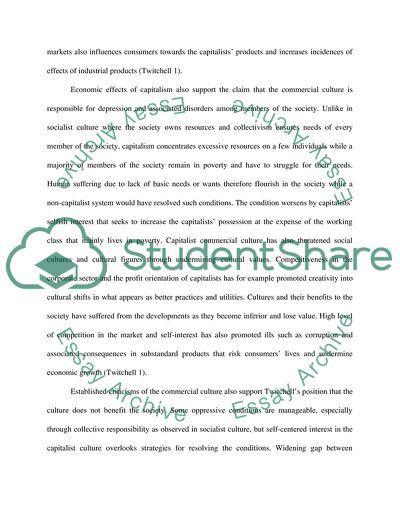Cite this document
(“Effects Of The Commercial Culture On The Society Essay”, n.d.)
Effects Of The Commercial Culture On The Society Essay. Retrieved from https://studentshare.org/english/1622940-draft
Effects Of The Commercial Culture On The Society Essay. Retrieved from https://studentshare.org/english/1622940-draft
(Effects Of The Commercial Culture On The Society Essay)
Effects Of The Commercial Culture On The Society Essay. https://studentshare.org/english/1622940-draft.
Effects Of The Commercial Culture On The Society Essay. https://studentshare.org/english/1622940-draft.
“Effects Of The Commercial Culture On The Society Essay”, n.d. https://studentshare.org/english/1622940-draft.


